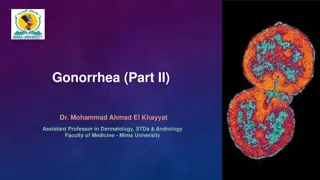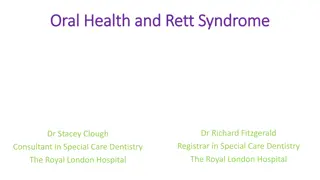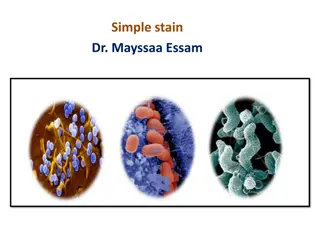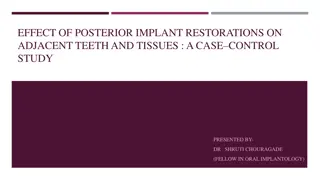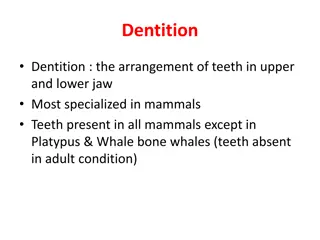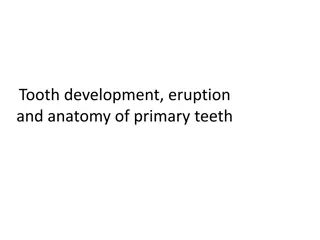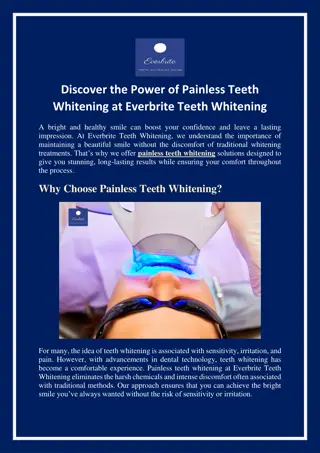Understanding Tetracycline Stain in Teeth Development
Tetracycline stain can lead to discoloration during teeth development due to the antibiotic's affinity for mineralized tissues. This intrinsic stain originates from within the tooth and cannot be removed by scaling. The impact on pregnant women and infants is significant as tetracycline can affect mineralization of teeth. Dental hygienists play a crucial role in informing patients about tetracycline stain and recommending treatments like whitening or veneers.
Download Presentation

Please find below an Image/Link to download the presentation.
The content on the website is provided AS IS for your information and personal use only. It may not be sold, licensed, or shared on other websites without obtaining consent from the author. Download presentation by click this link. If you encounter any issues during the download, it is possible that the publisher has removed the file from their server.
E N D
Presentation Transcript
Tetracycline Stain Tetracycline is in taken while teeth development discoloration can occur Tetracycline have an affinity for mineralized tissues and are absorbed by the bones and teeth
Tetracycline Stain Stain develops or originates from within the tooth, discoloration of the dentin reflects through the enamel Endogenous Intrinsic Stain Stain can not be removed by scaling
Tetracycline Antibiotic Infection Malaria Acne Gum Infection
Pregnant Woman This effect occurs during mineralization of the primary teeth beginning at about 4 months of gestation Tetracycline transferred through the placenta and enter the fetal circulation
Infant Early Childhood Mineralization of the permanent teeth starts at birth and continues into adolescence
Discoloration Discoloration may be generalized or limited to specific parts of individual teeth that were developing at the time of administration of the antibiotic
No tetracycline Pregnant woman Infant until 12
Dental Hygienest Inform the patient Whitening Recommend Veneers











